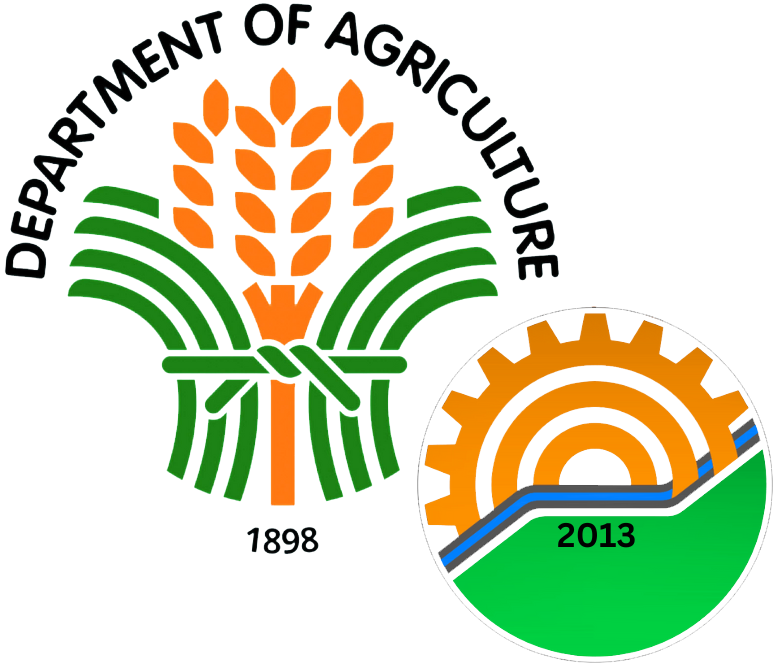

DEPARTMENT OF AGRICULTUREBUREAU OF AGRICULTURAL AND FISHERIES ENGINEERINGSugar Center, Annex II Building Extension, North Avenue, Diliman Quezon City




Butuan City – The Farm-to-Market Road Impact Assessment (FaMRIA) Project was officially launched on May 24, 2024, at Almont Inland Resort in this city with the signing of a memorandum of understanding (MOU) by DA-BAFE Director Engr. Ariodear Rico and CSU President Dr. Rolyn C. Daguil. This initiative, spearheaded by the Department of Agriculture – Bureau of Agricultural and Fisheries Engineering (DA-BAFE) and Caraga State University (CSU), aims to evaluate the far-reaching effects of Farm-to-Market Roads (FMRs) on local communities.
“Since 2000, the Department of Agriculture has funded and constructed 67,000 kilometers of Farm-to-Market Roads. This project aims to visit 300 FMR sites to evaluate their impact comprehensively,” said Dir. Rico in his opening remarks. “This collaborative effort ensures that we have the necessary resources and expertise to achieve our goals,” he added.

With the launching of the FaMRIA project will hopefully provide valuable data on the impact of FMRs in the Philippines. Among possible impacts that will be evaluated are improved market access, reduced transportation cost, improved access to services and possibly increased economic development.
The project involves collecting baseline data on socio-economic conditions in target rural areas before and after FMR construction or improvement. This includes assessing agricultural productivity, income levels, market access, transportation infrastructure, and community demographics.
Stakeholder engagement is a key aspect of the project. Local communities, farmers, government agencies, and non-governmental organizations (NGOs) will all be involved in the assessment process to include their inputs. The project will also look into the condition of existing roads, improvements, length, connectivity, and impact on transportation efficiency. Surveys, interviews, focus group discussions, and data analysis will be used to measure the impact on agricultural production, income generation, employment opportunities, market access, and overall rural development.
Dr. Daguil outlined the project’s phased approach, which will span over the next seven months. “Our timeline includes initial data collection, detailed assessments, and comprehensive analysis,” he said. “We anticipate challenges such as weather conditions and logistical constraints, but we have contingency plans in place.”
FaMRIA employs advanced technologies for data collection, including GIS mapping and remote sensing, to ensure precise and reliable data. “We are committed to using scientifically sound methodologies to ensure accurate analysis,” stated Engr. Jeffrey T. Dellosa, CSU’s Vice President for Research Innovation and Extension.
Dr. Daguil highlighted the long-term benefits of the project, stating, “The data and insights we gain will not only improve future infrastructure projects but also help in crafting policies that promote sustainable agricultural development.” Measures are in place to ensure the project’s findings are used to benefit future projects, including periodic reviews and updates to keep the data relevant.
As part of this initiative, CSU recently hosted an operational planning workshop to complete the work plan for FaMRIA. The five-day workshop covered essential aspects such as logistics, mock survey to enhance survey questionnaires, clustering of identified FMRs, and proposed itineraries across various locations. Participants included CSU enumerators, Project Technical Writers, DA-BAFE representatives, the ABEMIS Focal Person/FMRDP Focal Person from the Regional Agricultural Engineering Division, selected farmers, and representatives from the National and Regional Coordination and Monitoring Committee (NCMC/RCMC).
DA-BAFE will oversee FaMRIA, acting as the secretariat for the National Coordinating and Monitoring Committee for FMR projects. This committee includes key stakeholders such as the Department of Trade and Industry (DTI), Department of Tourism (DOT), Department of Public Works and Highways (DPWH), and Department of Science and Technology (DOST).###BAFE-ICTST
As of
As of
As of




All contents are in the public domain unless otherwise stated.
Learn more about the Philippine Government, its structure, how Government works and the people behind it.

Sugar Center, North Avenue, Diliman, Quezon City.
